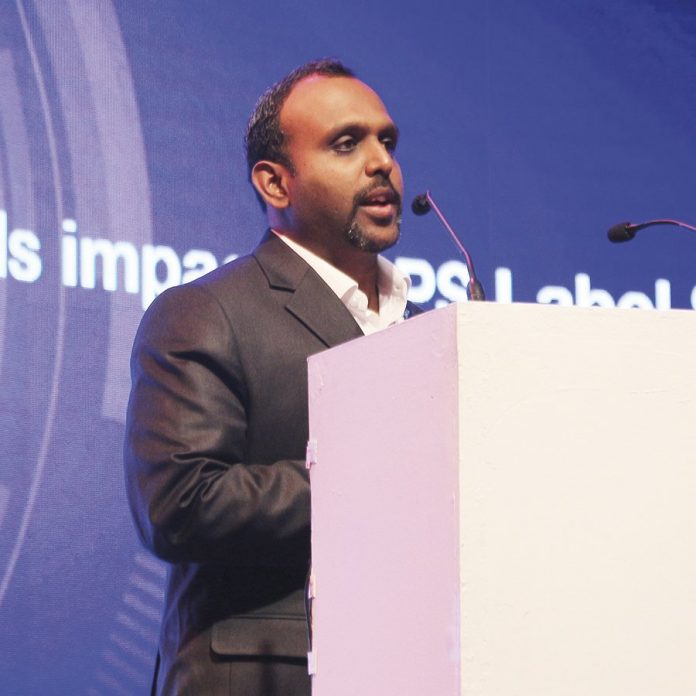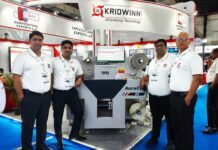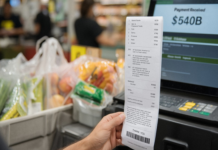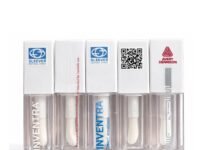At the recently concluded LMAI conference in Kochi, Manoj KM, director Business Development and International Business, Avery Dennison, shared trend forecasts impacting the packaging and label industry by 2025. Citing several sources including the KPMG Report and The Economist (August 2016), he said that urbanization in India will rise from 31% in 2010 to 56% of total population by 2050. Growth in eCommerce and consumer spending capacity will also affect the packaging and label industry.
Special label solutions
According to Manoj, sustainable, and intelligent and functional packaging will dominate the market. In terms of labels, the demand for personalized, premium, minimalist, smart, vintage and compliance-indicating labels will increase. Consumers will look for functionality and ease of use, while brand owners will look for innovation to differentiate. He also believes the digital take-up by the industry is growing faster than flexography. He cited Vandagraf’s Digital Inkjet White Paper (May 2019) projecting annual revenue in the flexographic industry to rise from US$ 35.76 billion in 2018 to US$ 40.11 billion in 2023 while the digital sector is expected to grow from US$14.50 billion to US$ 26.70 in the same 5-year period.
Avery Dennison has developed a series of new products such as Flexiprint Clear Conformable Film Innovation for tube labeling, a sustainable and cost-efficient co-extruded polyolefin for the home, personal care and food market segments. Another new product, Aqua Opaque uncoated paper, a registered trademark product of Avery Dennison, keeps a label white even in wet conditions. Avery Dennison also developed textured labels for premium products and wash-off labels for easy removal of labels leaving no adhesive residues on bottles or in washers. Apart from these, it has developed low migration labels, moist surface labels, cryogenic application labels, luminescent labels and labels for low surface energy substrates for pharma applications.
Avery Dennison’s sustainability goals for 2025
Parag Bagade, head of Sustainability & Advantage Services at Avery Dennison, explained the Avery Dennison 2025 sustainability goals. These include a portfolio of sustainable products developed for its target market segments, sourcing certified paper, recycling films, managing chemicals through restrictive substance policy, reducing greenhouse gas emissions, repurposing waste to create new products, eliminating waste produced by its products, and creating a safe and an engaging workforce. In line with these goals, Avery Dennison launched its ClearIntent product portfolio. The products in this portfolio are sourced responsibly, use only necessary materials, improve recyclability, while their waste can be used to make other products. Bagade also spoke of local recycling programs started by Avery Dennison in collaboration with various industry partners and facilities such as Mahajan Recycling Resources in India and SCG Trading in Thailand.
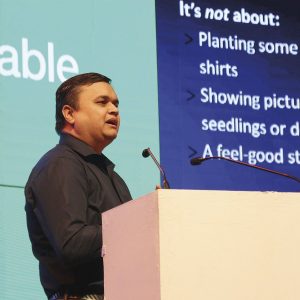
New developments and changing times in labels
Pankaj Bhardwaj, senior director and general manager, Avery Dennison, spoke to us about the new developments at the company. “We continue to innovate in our product and solution offering at our local R&D center in Pune to expand our product portfolio for security solutions for pharma industry. We are also developing a portfolio called ‘Think Thin’ for sustainable and thinner labels. Additionally, we are working to create new intelligent labels for RDIF NSC applications to make labels interactive and intelligent,” he shared.
Avery Dennison opened its fourth slitting and distribution facility, earlier in 2019, in Kolkata to service Eastern India and Bangladesh converters. Furthermore, the company also expanded its slitting capacity in Gurgaon and Pune along with its and sheeting capacity to help convert labels better and faster.
“Under our ‘ADvantage’ service portfolio, we provide eleven services for our customers that are primarily focused on how we can help them get more efficient, productive, profitable and enrich their knowledge, so that they can position themselves with brand owners more effectively, and increase their revenues. One such program, ‘Line Scan,’ includes going to the customer premises, spending time with their line to understand their current process and looking for gaps and opportunities for improvement. We then together work out a short- and long-term plan to how to improve those areas for 6-12 months. We have been able to help our customers save significant cost enable them to grow. We also have ‘AD Track’, a registered trademark product of Avery Dennison, shipment tracking systems which provides realtime status of ordered material to customers through digital medium to help them track it at any given point of time so that they can schedule better,” Bhardwaj added.
Speaking of the changing trends in the label industry, Bhardwaj is of the view that these present opportunities. “The perspective towards digital, as a print medium, is subjective. I think flexo going to digital seems that both will co-exist at least in the foreseeable future. Digital is not limited to print; it is about how we embrace technology in our entire business to procure, manufacture, promote ourselves, serve and connect with our customers better. My advice to the industry is that there is no option of whether we can adopt digital or not; we have to adopt it and use it to our advantage,” Bhardwaj said.



